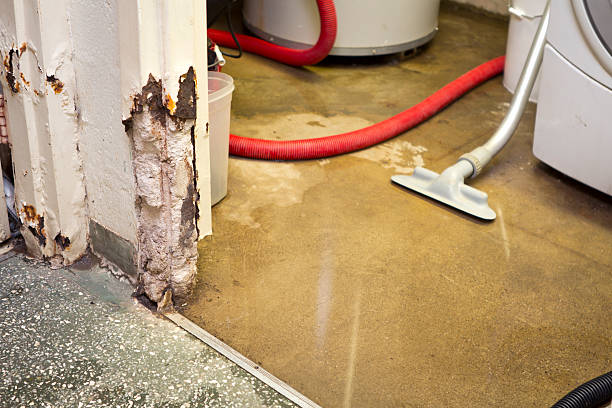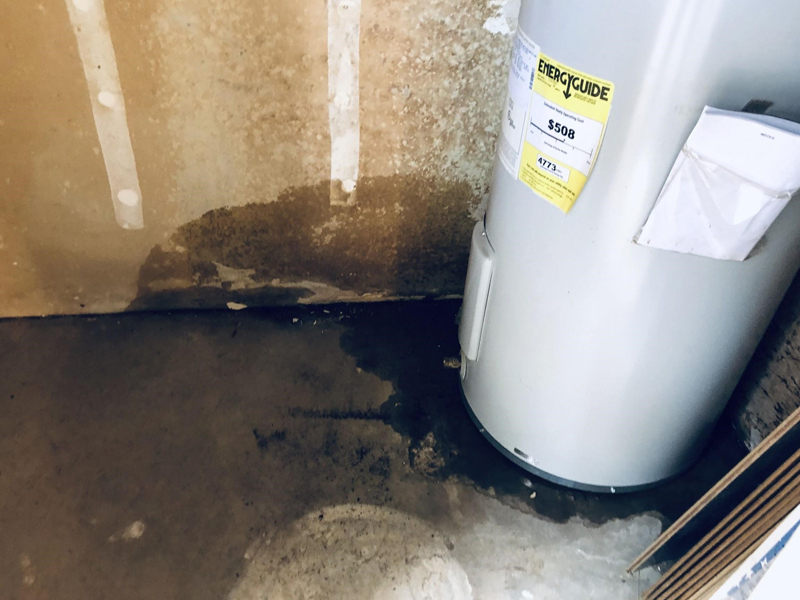Key Measures Residential Property Owners Should Consider While Managing Broken Water Heaters
Key Measures Residential Property Owners Should Consider While Managing Broken Water Heaters
Blog Article
Nearly everybody maintains their personal rationale with regards to Water Heater Burst.

Whether it lies in the cellar or a separate room, busted hot water heater can trigger stress and anxiety. A standard unit holds 80 gallons, so an over night leak will certainly lead to a flood. This results in major home damage with soaked walls and also floors. Besides, having no hot water supply is likewise frustrating. If you are managing these issues, keep in mind of the following:
Shut Off Power Source
Prior to calling the plumber, shut down a gas water heater by turning the temperature dial. This is typically located on top of the thermostat. Switch over off the circuit breaker if you have a version that runs on electrical power. This will certainly prevent electrocution, particularly if there is a leak as water is a conductor. Commonly, the burner shuts off when the water strikes a specific temperature level. With a damaged tank, it may malfunction. Sufficing off ensures you stay safe.
Cut Off the Cold Water Supply
Cut off the containers tap water supply from the resource. This goes from your primary water line into the tank. When your container remains in good condition, the cold water stops filling up when the storage tank is complete. Considering that it is dripping, the water will proceed to move. Close the valve located on top of the heater. Turn this clockwise to shut it off. You need to turn off that main water supply line outside your residential or commercial property if you can not discover it or reach it.
Call the Plumber
After doing the first two security actions, you have to call your plumber to come right away to deal with a ruptured water heating unit. There are normally signs that your aging water heater has debris accumulation in the interior.
Rather, as soon as you identify these signs, have a specialist come to inspect your water heating unit say thanks to. Commonly, water heaters have a life expectancy of concerning 8 to 12 years.
Tidy up Residential or commercial property
After calling the plumber, document damage by taking notes and photos so you can assert your house owner's insurance coverage. From there, start the immediate cleanup. Obtain any type of essential items to prevent further saturating. Get rid of any type of standing water to prevent mold and mildew and mildew growth. If you have a completely submersible water pump, use that to drain pipes the water. Or else, the standard bucket technique will additionally work. Attempt to wipe out everything, consisting of walls and also baseboards. If you have an electrical follower and dehumidifier, maintain them running to keep air circulating. This will help discourage mold and mildew growth.
Remember, if you observe any type of problems with your hot water heater, call the pros as soon as possible. You can not take this trouble lightly since a faulty thermostat can raise water temp to a hazardously high level, resulting in unexpected burns. A broken heater pressure relief valve can also cause an explosion. For best outcomes, get an annual check so your unit gets evaluated, cleansed, drained, and re-filled, ensuring optimum efficiency.
Whether it is located in the cellar or a different space, busted water heaters can trigger anxiety. Prior to calling the plumber, closed off a gas water heating system by turning the temperature dial. After doing the initial two safety actions, you have to call your plumber to come right away to fix a burst water heating unit. If you have a completely submersible water pump, use that to drain pipes the water. Remember, if you notice any type of concerns with your water heater, call the pros right away.
8 REASONS YOUR HOT WATER HEATER IS NOT WORKING & HOW TO FIX
Water Heater Problems & Solutions
Loose or Damaged In-Line Valve
Unlike a water leak near the bottom of your water tank, a water leak on top of your system can be easily fixed. A common cause of water tank leaks includes a loose in-line valve. This is a handle that is located at the top of the water tank that is engineered to activate or deactivate the flow of water. To fix this problem, you will need to secure the nut that holds the ball or in-line valve in its location. If the leak becomes more severe once it is tightened, you will be required to travel to your local hardware store to purchase a new in-line valve for your water heater.
Damaged Pressure Relief Valve
Most types of water heaters are equipped with a pressure relief valve that is engineered to discharge pressure from the water tank when it becomes too high. If this valve on top of your water heater begins to leak, we recommend purchasing a new one online or from your local store. The process of removing and replacing pressure relief valves is not complicated.
No Warm Water
If you have an electric water heater in your home, the most typical cause of a lack of warm water is a broken heating element. Your water heater is equipped with two heating elements that are tasked with heating incoming water in the water tank. Once a heating element begins to malfunction, you will have little to no hot water to use for showering, cleaning, and laundry.
Low Supply of Hot Water
Are you continuously running out of warm water? This issue may be a byproduct of a cracked dip tube. This tube is engineered to push cold water to the base of your water tank to be heated. Once a crack or hole begins to form in the dip tube, the incoming supply of cold water may be released near the top or middle of your tank. As a result, the cold water on top of the tank will be sent to the faucets and showers in your house. This hot water heater problem can only be fixed by replacing the dip tube on your system. Since the process of installing a new dip tube is complex, we recommend calling a certified technician for help.
A low supply of warm water may also be a signal of excess sediment buildup in your water tank. As your water heater reaches the middle of its life cycle, minerals in water including magnesium and calcium will begin to collect at the base of the water tank. As the minerals continue to grow, there will be less room in the water tank to store hot water. To resolve this problem, flush your water heater to remove the excess minerals.
Water is Too Warm or Cold
If the water in your shower feels uncomfortable hot or cold, you can adjust the temperature of your water by changing the settings on your thermostat. Setting the temperature to 120 degrees Fahrenheit may help you save money on your utility bills. This is an excellent temperature to use if you’re worried about scalding or skin irritation. Does this temperature feel too cold? You may also adjust the thermostat to 140 degrees Fahrenheit to make your showers more pleasant. If your hot water heater is not working when you change the temperature, this is an indicator of a broken thermostat. Immediately find a certified plumbing or heating contractor in your area to repair or replace your thermostat.
Low Water Pressure
Low water pressure is not always caused by a malfunctioning water heater. If you live in an older home with smaller water pipes, the flow of water will be restricted prior to reaching our kitchen or bathroom skins. The only way to eliminate this hot water heater problem is to connect new ¾-inch water lines to your system. Another type of problem that may negatively impact your water pressure includes calcium deposits in water pipes.
As magnesium and calcium begin to form in your pipes, the diameter of your water lines will become smaller. As a result, the warm water from your water heater will not be able to travel in an efficient manner to your sinks or appliances. Since the process of replacing water pipes includes removing drywall, an average homeowner that does not have a plumbing license will not be able to fix this hot water heater problem.
https://www.wmhendersoninc.com/blog/8-reasons-your-water-heater-is-not-working-how-to-fix/

Hopefully you enjoyed reading our excerpt about Water Heater Repair. Thank you for spending some time to read through our posting. Appreciated our content? Please share it. Help someone else locate it. Thanks so much for your time spent reading it.
Book Maintenance Report this page